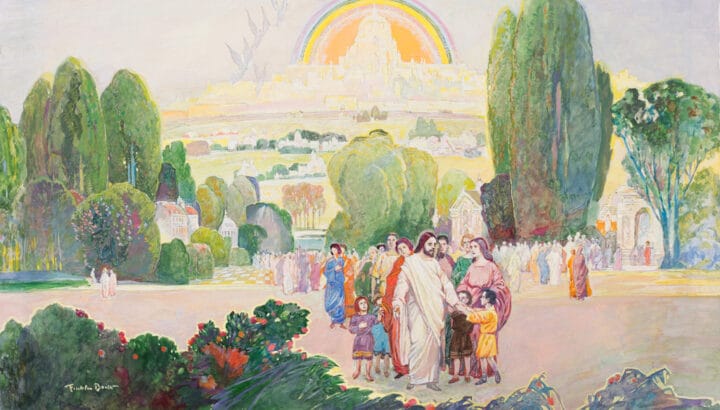Daily Lesson for Monday 19th of May 2025
In Revelation 14:1-20, we find God’s people standing on Mount Zion. The original Mount Zion was located just west of the old city of Jerusalem today and was thought of as the seat of God’s throne, or presence, among His people. In time, the temple mount, located on Mount Moriah, came to be identified with Mount Zion, as well.
In other words, this important depiction of God’s last-day remnant is presented in sanctuary language, as with most of the key scenes in the book of Revelation. Thanks to the Lamb, God’s people are on His holy hill!
Read Psalms 15:1-5 and Psalms 24:1-10, in which David asks an all-important question: “Who shall dwell in thy holy hill?” Compare his reply in these psalms with the description of the people standing on Zion in Revelation 14:1-5. What parallels do you find? How does one join this group? What is the significance of the fact that the Father’s name is inscribed in their foreheads? (Revelation 14:1).
The description found in David’s psalm of those permitted into the presence of God is a pretty tall order for mere sinners to fulfill. Who among us can honestly say that we have always walked uprightly? Or have always spoken the truth in our hearts (Psalms 15:2)? None of us can say that we “shall never be moved” (Psalms 15:5, NKJV). If we say that we have never sinned, the Bible teaches that we have no truth in us (1 John 1:8).
We can come to no conclusion other than it is the Lamb who enables us to stand on Zion. The Lamb is not mentioned in David’s psalm, but He suddenly appears in the description found in Revelation 14:1-20. It is almost as if Revelation 14:1-20 is answering David’s question. Now that the Lamb of God is established on Mount Zion, in the sanctuary, we can also be present there because of His perfect righteousness credited to us by faith. We can have the “boldness to enter the Holiest by the blood of Jesus, by a new and living way which He consecrated for us, through the veil, that is, His flesh” (Hebrews 10:19-20, NKJV). Without His blood, what hope would we have? None, actually.
|
Think about all the Bible promises of victory over sin. Why, even with those promises, do we still find ourselves falling short of the perfect example Jesus has set for us, and why do we need His perfect life as our substitute? |
 (0)
(0)



